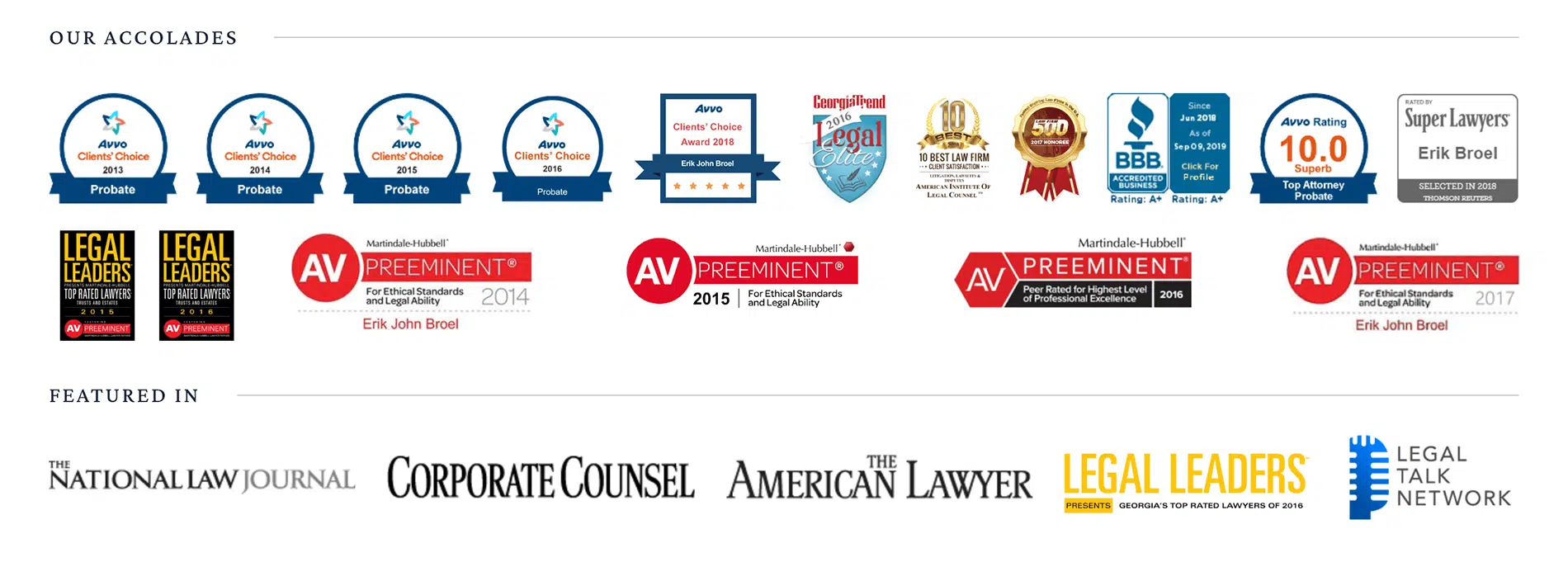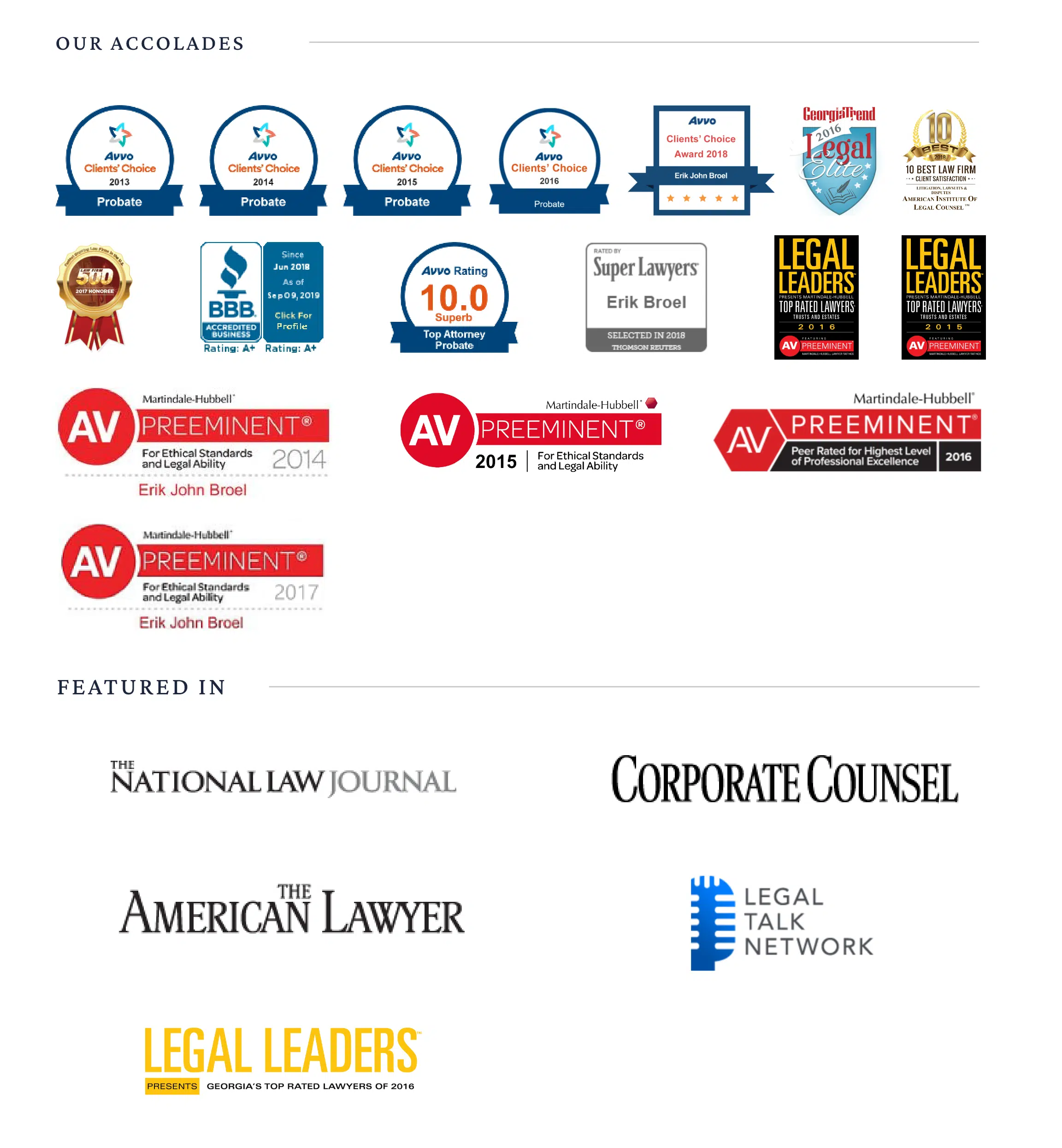As probate attorneys, some of the most frequent questions we receive are “What is a conservatorship?”, “What is the difference between guardianship and conservatorship?”
There are two main situations when someone needs conservatorship. The first circumstance is when a minor child is going to receive more than $15,000. The minor child could be inheriting the money from the death of a parent, or they could be receiving it because of a court settlement. There are other potential reasons that the minor child could be receiving the assets as well.
In other circumstances, a conservatorship is a way for someone to assume legal guardianship over an adult. Families often use conservatorships to help deal with a parent’s mounting medical, financial, and mental health needs. The status of a conservatorship is dependent on the individual’s capacity to make decisions independently.
If you find yourself in one of these situations, this post will provide the information you need to navigate through these complex situations.
In this article, you’ll learn:
Let’s start with the basics.
Generally speaking, conservatorship is a legal proceeding in which a court appoints a person (conservator) to manage the financial and personal affairs of a minor or incapacitated person (conservatee).
It’s important to understand that conservatorship focuses on the needs of the conservatee rather than the interests of the conservator.
In all cases, the person who serves as protector has full authority over the relevant aspects of the conservatee’s life. Conservatorships are valid in every state, but they’re governed differently in accordance with state laws.
A conservatorship for a minor is a court-supervised plan to manage the minor’s assets until they turn 18. The conservator assumes legal responsibility for the minor’s finances and can limit spending decisions.
Minor conservatorships are created so that someone, usually a parent, can preserve significant assets belonging to a minor child and increase their value as much as possible before handing them over to the child when they turn 18. The money that is the subject of a conservatorship belongs to the child, not the conservator, and generally may not be used to provide routine medical care and support for the minor.
A person does not have to be one of the child’s family members to petition the probate court for conservatorship. However, this position always comes with ethical and legal responsibilities and should be taken seriously.
The conservator is a person appointed by the court to hold and manage the property of a minor.
While the conservator is often a natural parent or a close family member, that is not always the case. The court can grant another relative (or even the county conservator) authority to administer the affairs of a minor.
Establishment of a conservatorship of a minor may be required if:
You should know that there is a difference between a guardian and a conservator. While a guardian is often responsible for the care of the ward (the child or adult incapacitated individual), a conservator has the role of managing the conservatee’s assets.
Typically, conservatorship and guardianship are different, but one person may fulfill both roles.

Under Georgia law, a conservatorship is necessary when a minor is going to inherit more than $15,000.
To establish a conservatorship, you must file a petition with the probate court.
Once the judge appoints you as a conservator, you are required to file an initial inventory with the court accounting for all the assets held by the conservatorship.
After that, the conservator must file an annual return updating the inventory and an asset management plan outlining expected expenses each year.
Other steps may be necessary to achieve a conservatorship, depending on your specific circumstances.
Under conservatorship in Georgia, a conservator typically is responsible for protecting and managing the minor’s financial affairs. He must collect and preserve the conservatee’s money and use it for the support, care, and benefit of the child and his or her dependents. The court will determine how the conservator is to manage the funds.
As a conservator, you must be prudent in investing and spending the minor’s assets and have to account for all funds received and/or expended on his behalf. You also have a duty of loyalty and may not use any of the conservatee’s assets for your own personal benefit.
The court maintains supervisory authority over the conservator and will require a court order for any substantial expenditures. The court and law generally impose a regular accounting requirement to monitor the management of the minor’s assets.
After you file the Petition for Letters of Conservatorship of Minor, an oath and video affidavit are completed at the time of filing or at the first available time. A Guardian ad Litem will then be appointed to review the minor’s best interests and file a report with the court. The court will then schedule a hearing and will issue an order.
All conservators are required to post a bond prior to their appointment. A bond is an insurance policy to ensure that the conservatee’s finances are protected in the event that the appointed conservator mishandles the assets. The court will set the amount of the bond based on the value of the liquid assets due to the minor.
There is only temporary guardianship/conservatorship or guardianship/conservatorship in Georgia.

It is typically used in emergency situations when there is an urgent need for someone to make lifestyle medical decisions for the proposed ward temporarily.
Temporary guardianship is only valid for a certain period of time in Georgia and does expire. In the case of minors, it automatically terminates on the day the minor turns 18, is adopted, becomes emancipated, or dies.
A court order may also terminate the guardianship.
This is typically used in emergency situations. In these situations, there is an urgent need for someone to temporarily make financial decisions for the potential conservatee. Like guardianship, temporary conservatorship is only valid for a certain period of time in Georgia and does expire.
When the minor reaches the age of eighteen, all assets will be turned over to him. The conservator will then file final documents at the court for a final settlement and attempt to close the conservatorship.
If the petitioner has been appointed as guardian over the ward, they are allowed to decide on the ward’s housing, health care, and other primary care needs.
If you are appointed as guardians and have received Letters of Guardianship, you are the permanent guardian of the ward.
If the petitioner has been appointed as conservator over the ward, they will set up a conservatorship bank account where the conservatee’s money will be held and maintained.
The person appointed as conservator is responsible for managing the ward’s funds and ensuring that their assets and financial affairs are handled properly.
If the person receives Letters of Conservatorship, they are appointed permanent conservator over the ward.
Both the guardianship of a minor and the conservatorship of a minor would be terminated when the child turns 18 years old.
Guardianship occurs when someone is no longer able to care for themselves. This may include an elderly individual who has been diagnosed with dementia or Alzheimer’s. This may also include a minor child whose parents have passed away.
Guardianship should not be confused with custody situations. If a PC (parenting coordinator) has lost custody of their minor child and would like to regain it, they will need to speak with a Family Law attorney.
The individual who may need guardianship/conservatorship is called a ward. When someone attempts to gain guardianship over a ward, they are stating that they want to care for the ward’s basic needs, such as housing, clothing, food, physical and medical care, etc.
One individual can be appointed guardian and another conservator for the ward, but it’s also not uncommon for the same person to fulfill both roles.
When someone attempts to gain conservatorship over the ward, they are stating that they want to handle the person’s finances and assets.
If a minor is entitled to an inheritance from an estate, a conservatorship is typically set up so that the conservator manages and maintains the funds for the minor until he becomes an adult.

Under Georgia law, a conservatorship is necessary when a minor is going to inherit more than $15,000.
The reason for this is that minors are not allowed to own property. However, the minor’s parent or guardian is permitted to hold up to $15,000 for the benefit of the child as a custodian.
A conservatorship is required when the amount of property due to a minor exceeds that threshold. Unfortunately, there is no way around this requirement.
A conservatorship may also be necessary when the court has determined that an adult lacks sufficient capacity and is unable to handle their finances on their own behalf.
For example, if an adult has dementia or Alzheimer’s disease and the court finds that he is no longer competent to manage their own properties and finances, then he is likely in a situation where he needs a conservatorship.
Whether setting up a conservatorship for an incapacitated person or for a minor, it can also involve some costs.
Many conservators are family members and don’t ask to be paid for the services they provide to a loved one. Under Georgia law, the conservator may receive reasonable compensation payable from the conservatee’s estate.
However, the court must approve the conservator’s fees, which means you must petition the court for approval to be paid. A judge will review the petition and any objections before wholly or partially approving a payment request, and the interested parties can challenge unreasonable fee requests. Once the court has approved the fee request, the conservator may be paid the approved amount.
Alongside conservatorship, there are other solutions to protect the financial well-being of minors. These may include establishing a trust for the minor child or an annuity or the creation of a special needs trust.
Depending on your specific situation, your attorney can also discuss additional potential options to choose from instead of a conservatorship.
Conservatorships are very restrictive. For example, the conservator cannot spend any money without court permission.
In addition, the conservator is severely limited in how he can invest the minor’s funds. For the most part, the conservator is limited to investing in government-backed bonds.
If you find yourself in the unfortunate circumstance of having a parent pass away intestate, professional assistance can make the difference in protecting the interests of your child and ensuring a fair distribution of assets. Their legacy is important, and helping them with financial planning and personal development is crucial for them to live as healthy adults.
Our experienced probate attorneys are ready to help you understand what a minor is entitled to when a parent dies without a will, what is a conservatorship and will provide strategies tailored to your specific situation. To understand how you can best protect your child, you can contact our office at (770) 796-4582 to schedule a consultation.
Disclaimer: The information above is provided for general information only and should not be considered legal advice. Our probate attorneys provide legal advice to our clients after talking about the specific circumstances of the client’s situation. Our law firm cannot give you legal advice unless we understand your situation by talking with you. Please contact our law office to receive specific information about your situation.
Compassionate listeners, knowledgeable guidance. Schedule a free consultation with our team and let us help you and your family with your legal concerns.
GET IN TOUCH 770-796-4685Learn Important Probate Essentials, including key things that go wrong in an estate, how to prevent them, and what to do if they happen.



© 2024 Georgia Probate Law Group by Broel Law, LLC. All rights reserved.